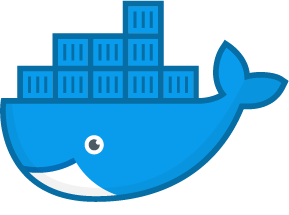Demonstrating Docker-Ready solution for GoModule
Tested Infrastructure
| Platform | Number of Instance | Reading Time |
|---|---|---|
| Play with Docker | 1 | 5 min |
Pre-requisite
- Create an account with DockerHub
- Open PWD Platform on your browser
- Click on “New Instances” to bring up console on the right side of the screen
Cloning the Repository
git clone https://github.com/collabnix/dockerlabs/tree/master/beginners/httpserver-go-docker
Go 1.11 includes opt-in feature for versioned modules. Before go modules Gophers used dependency managers like dep or glide, but with go modules you don’t need a 3rd-party manager as they are included into standard go toolchain.Modules allow for the deprecation of the GOPATH, which was a blocker for some newcomers in Go.
This tutorial will show you how to enable go modules for your program and then package it with Docker.
Create a project
Let’s create simple http server which will use logrus package for logging.
As I said before go modules is an opt-in feature, which can be enabled by setting environment variable GO111MODULE=on.
export GO111MODULE=on
mkdir httpserver && cd httpserver
go mod init
go get github.com/sirupsen/logrus
By now, 2 new files gets created in our folder: go.mod and go.sum.
package main
import (
"fmt"
"net/http"
log "github.com/sirupsen/logrus"
)
func main() {
http.Handle("/", loggingMiddleware(http.HandlerFunc(handler)))
http.ListenAndServe(":8080", nil)
}
func handler(w http.ResponseWriter, req *http.Request) {
fmt.Fprintf(w, "package main #14")
}
func loggingMiddleware(next http.Handler) http.Handler {
return http.HandlerFunc(func(w http.ResponseWriter, req *http.Request) {
log.Infof("uri: %s", req.RequestURI)
next.ServeHTTP(w, req)
})
}
Now if we run go build it will download deoendencies and build a binary:
go build
./httpserver
Packaging with Docker
Let’s create a simple Dockerfile for our server.
FROM golang
ENV GO111MODULE=on
WORKDIR /app
COPY . .
RUN CGO_ENABLED=0 GOOS=linux GOARCH=amd64 go build
EXPOSE 8080
ENTRYPOINT ["/app/httpserver"]
docker build -t httpserver .
docker run -p 8080:8080 httpserver
Caching go modules
As you can see go build downloads our dependencies. But what is not good here is that it will do it every time we build an image. And imagine if your project have a lot of dependencies, it will slow down your build process. Let’s change something in main.go file and run build again.
To fix this we can use go mod download which will download dependencies first. But we should re-run it if our go.mod / go.sum files have been changed.
We can do it by copying go.mod / go.sum files into docker first, then run go mod download, then copy all other files and run go build.
FROM golang
ENV GO111MODULE=on
WORKDIR /app
COPY go.mod .
COPY go.sum .
RUN go mod download
COPY . .
RUN CGO_ENABLED=0 GOOS=linux GOARCH=amd64 go build
EXPOSE 8080
ENTRYPOINT ["/app/httpserver"]
Multi-stage build
One more thing I like to do with my Dockerfiles is to use multi-stage build to reduce the size of final image. To run our server we only need a binary file, we don’t need the go installed, so inside one Dockerfile we can build program first using golang image, and then copy only a binary from it to scratch.
# build stage
FROM golang as builder
ENV GO111MODULE=on
WORKDIR /app
COPY go.mod .
COPY go.sum .
RUN go mod download
COPY . .
RUN CGO_ENABLED=0 GOOS=linux GOARCH=amd64 go build
# final stage
FROM scratch
COPY --from=builder /app/httpserver /app/
EXPOSE 8080
ENTRYPOINT ["/app/httpserver"]
Conclusion
So I think go modules is a nice feature, and you definitely should try it, I use it in all my services I write. Of course it needs some improvements, but it works well in practice.
